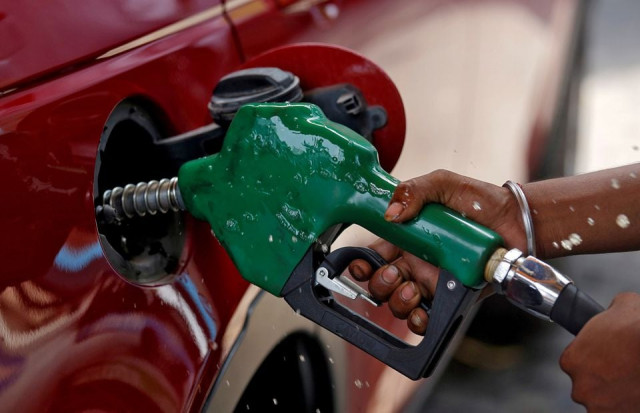Fare frenzy fuelled by pricey petrol
Inflation-hit commuters seek cheaper alternatives, regulator’s intervention

The transporters in Rawalpindi on Wednesday raised the fares due to increase in the prices of petroleum products, with the stop-to-stop fare increased from Rs40 to Rs50.
The fare per ride has been increased by Rs10 in the inner city, Rs20 for suburban areas and up to Rs40 for other tehsils of the district like Murree, Kotli Sattian, Kahota, Gujjar Khan Kallar Syedan and Taxila. For longer routes, the fare per ride has witnessed an increase between Rs100 to Rs130.
The increase follows yet another massive hike in fuel prices, with the new caretaker setup announcing a Rs17.5/litre increase in the price of petrol and a Rs20 increase in the price of diesel on Tuesday. With the latest hike, petrol prices have risen to Rs290.45/litre and diesel prices to Rs293.4/litre.
The latest fare hike It resulted in heated exchanges between passengers at bus terminals.
Local Sadaqat Ali, who relies on public transport, said that working- and middle-class families had to bear the brunt of the frequent upward revisions in transport fares.
Asghar Mehmood, another resident, said that the decline in the value of the Pakistani currency, as well as the hike in fuel prices, were being transferred to commuters. “We are helpless in the face of runaway inflation.”
The country's Consumer Price Index (CPI) rose to 28.3 per cent in July, year-on-year, the statistics bureau said earlier this month, with prices up 3.5 per cent in July from the previous month.
In June, the CPI rise was 29.4 per cent year-on-year, coming off a record 38 per cent in May.
Meanwhile, the association of transporters has submitted a requisition to Rawalpindi’s Regional Transport Authority (RTA) to fix the new fares immediately.
The president of the local transport federation, Asif Khan, said that the rise in fuel prices had necessitated the increase. “The price of auto spare parts, tyres have increased by 500 to 1000 per cent in the last 16 months. This time, price hikes in petrol and diesel have forced us to increase the fares,” he said.
Tariq Khan, who heads a collective of taxi drivers, said their business had declined by 50 to 60 per cent due to the continuous increase in rates of fuel, spare parts and overall inflation.
People have switched to cheaper alternatives like Qingqis (locally called Chingchi rickshaws), transporter Suzukis and ride-hailing services. He said that the increase in prices and reduction in customers forced their hand. “The government should withdraw this increase in petroleum and diesel prices immediately.”
The switch to Qingqis and cheaper modes of transport has come despite an increase in their fares.
The vehicles plying shorter routes in the inner-city areas across the city have increased the fare by Rs20 per ride. Ride-hailing services like Bykea have also witnessed an increase in fares.



















COMMENTS
Comments are moderated and generally will be posted if they are on-topic and not abusive.
For more information, please see our Comments FAQ